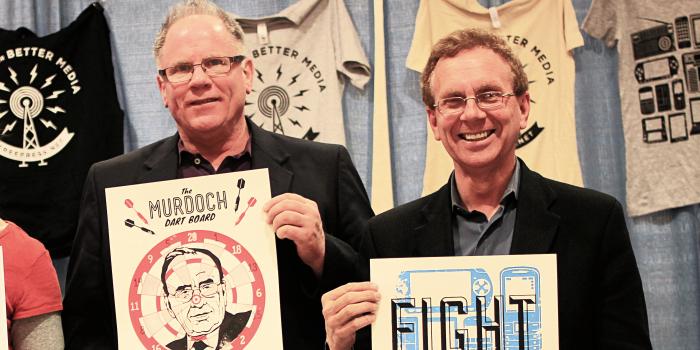FCC's Senseless Proposal Would Destroy Lifeline Program and Harm Struggling Families
WASHINGTON — On Thursday, Federal Communications Commission Chairman Ajit Pai released a plan that would eviscerate the Lifeline program, which provides a modest $9.25 monthly subsidy so that poor people can connect to communications services to help them meet their basic needs.
The FCC’s proposal includes, among other things, a budget cap, which could arbitrarily limit program participation or slash funding to fully eligible recipients. The FCC then asks whether it should adopt a lifetime benefits cap that would arbitrarily cut off funding for the most vulnerable users, such as elderly people and people with disabilities, by limiting the amount of time an individual can use the program.
The proposal would also kick “non-facilities-based providers” out of the program, essentially eliminating the ability of resellers to offer Lifeline services. At present, four of the five top Lifeline providers are non-facilities-based, accounting for more than half of the program’s disbursements.
In some parts of the country non-facilities-based carriers are the only ones offering service. They tend to serve the most vulnerable communities — whom large facilities-based carriers have long shunned — and they’ve provided a level of competition that’s led to better services at the same $9.25 subsidy.
The Lifeline program has been shrinking for five years now, and the FCC gave little rationale for its attack. According to the Universal Service Administrative Company’s most recent data, Lifeline is expected to distribute $1.29 billion in payments during 2017, the lowest amount since 2009. This is a 41 percent decrease from the program’s peak year of 2012.
Free Press Deputy Director and Senior Counsel Jessica J. González made the following statement:
“Shame on Chairman Pai and any other commissioner who votes for these proposals. Pai’s cruel and senseless plan would kill Lifeline and benefit no one.
“Pai has dubbed the Lifeline proceeding ‘Bridging the Digital Divide for Low-Income Consumers.’ This is pure doublespeak. The proposal demonstrates that his intention is to do the opposite. These changes would destroy a program that helps struggling families — a program that directly targets support to poor people and people of color, who are less likely to be connected to communications services.
“That an FCC chairman is even able to float such a ruthless proposal, which would deprive fellow human beings of essential communications, speaks to a deep sickness in our society and in the tenor of the Lifeline debate. There’s a tendency to wage war on the poor, to demonize and assume the worst about Lifeline recipients. With White supremacy on the rise around the country and in the White House, we should confront the racist undertones of these assumptions — not reinforce them by hacking away at Lifeline and people’s lives.
“We should move past inflated claims of waste, fraud and abuse in Lifeline, which aim to harm the poor people and people of color who rely on Lifeline to meet basic needs. The reality is that Lifeline has one of the smallest budgets and lowest improper-payment rates of any federal government-benefits program.
“Visionary bipartisan leaders created Lifeline during the Reagan administration, seeking to connect the most vulnerable people in the United States to telephone service. The Bush administration updated the program to cover wireless-telephone service, drawing on knowledge gained in the aftermath of Hurricane Katrina. In 2016, the Obama administration modernized Lifeline to more fully promote affordable broadband connectivity.
“Several rounds of real reforms have been instituted in the past five years to address any waste, fraud and abuse in the program. Despite Pai’s Orwellian claims about how this item will allegedly help bridge the digital divide, nobody should mistake today’s hit job for reform.”
In September, González testified before the Senate Committee on Commerce, Science, and Transportation on behalf of the Lifeline program.




